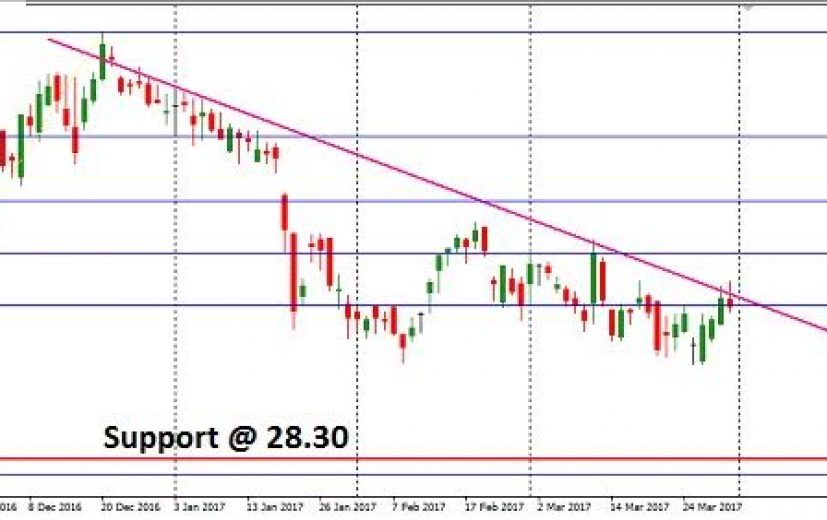 General Electric (NYSE: GE), the largest manufacturing company in the US, reported fiscal 2016 fourth-quarter earnings of $3.49 billion or $0.39 per share on revenues of $33.1 billion, compared with $6.28 billion or $0.64 per share on revenues of $33.9 billion in the similar period last year.
General Electric (NYSE: GE), the largest manufacturing company in the US, reported fiscal 2016 fourth-quarter earnings of $3.49 billion or $0.39 per share on revenues of $33.1 billion, compared with $6.28 billion or $0.64 per share on revenues of $33.9 billion in the similar period last year.
Excluding charges, the industrial conglomerate posted Q4 2016 non-GAAP earnings of $0.46 per share, down 12% from $0.52 per share in Q4 2015. The earnings were in line with analysts’ estimates.
However, revenues were below Wall Street estimates of $33.9 billion.
The company also issued FY17 earnings and revenue outlook below analysts’ estimates. This pushed the share price below the psychological level of $30.
General Electric
The company recently completed divesting GE Money Bank, its consumer finance business based out of France, for an undisclosed amount. The sale was a part of the plan to exit risky finance related business and concentrate on core manufacturing business, with focus on sale of large equipment such as drilling machines, medical equipment and aviation engines. This has revived investors’ hope of better performance. However, as explained below, the stock is likely to fall further in the near future.
Following the exit from the financial service business, GE anticipates manufacturing activities to generate 90% of its total operating earnings by 2018. In 2014, the operating earnings from manufacturing activities accounted for 58% of total earnings. The company has also signed an agreement with Baker Hughes Inc. to merge its Oil & Gas business with the latter. The merger is aimed to restore growth in GE’s Oil & Gas business. However, contrarians believe that the merger would only increase the exposure of GE to energy prices. Furthermore, political unrest in the middle-east is expected to affect GE’s orders in both power and Oil & Gas business.
At the end of fiscal 2016, GE had equipment orders worth $55.2 billion, which represents a 2% decline on y-o-y basis. However, devoid of Alstom, the backlog is only $43.3 billion, down 21% on y-o-y basis.
Furthermore, it may take a while before investors see the result of GE’s restructuring activities. In the past three months, the company’s Q1-2017 earnings estimates have declined considerably to $0.17 per share, from $0.31 per share. Similarly, the FY17 earnings estimates were slashed to $1.63 per share, from $1.66 per share.
In spite of recent decline, the financial ratios indicate that the stock remains overvalued, relative to industry standards. The PE and sales ratio of the stock is 29x and 2.2x, while the industry average is 25 and 2.1. Thus, above facts indicate that fundamentally the stock will be under the bear grip in the short-term.
The stock of GE is moving along a descending trend line as shown in the image below. The stock has lost nearly 61.8% of previous gains. This indicates the underlying bearishness in the scrip. So, we can expect the stock to reach the next major support level of 28.30.
A put option would be ideal to trade under the current scenario. The option should be valid for a week, while the entry should be made when GE trades near $29.80 in the equity market.





